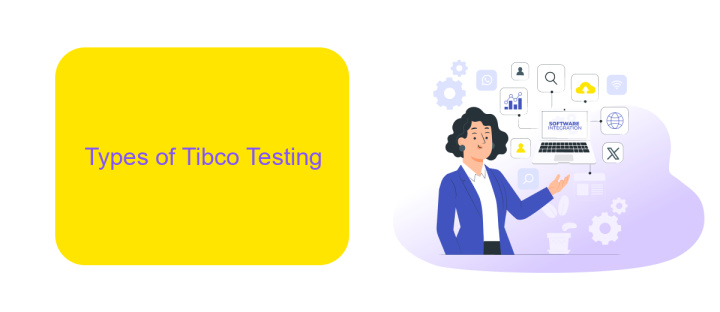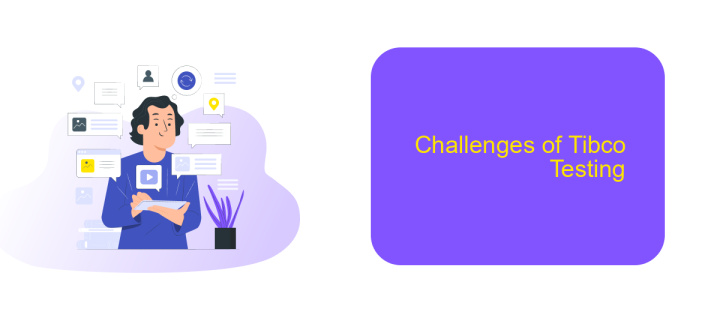What is Tibco Testing
TIBCO testing is a critical process for ensuring the reliability and performance of applications built using TIBCO software solutions. This testing methodology involves validating the integration, functionality, and scalability of TIBCO-based systems, which are widely used for enterprise service bus (ESB), business process management (BPM), and data analytics. Effective TIBCO testing helps organizations achieve seamless and efficient operations, minimizing risks and enhancing overall system performance.
Introduction to Tibco Testing
Tibco Testing is an essential process for ensuring the reliability and performance of applications built using Tibco software. Tibco provides a suite of tools for integration, analytics, and event-processing, making it crucial to thoroughly test these applications to detect and resolve issues early.
- Functional Testing: Verifies that the application functions according to specifications.
- Performance Testing: Assesses the application's responsiveness and stability under various conditions.
- Integration Testing: Ensures seamless interaction between different modules and external systems.
- Regression Testing: Confirms that new changes do not adversely affect existing functionalities.
Effective Tibco Testing often involves the use of specialized services like ApiX-Drive, which facilitate the integration of various applications and automate workflows. By leveraging such tools, teams can streamline their testing processes, ensuring that all integrations are functioning correctly and efficiently. This holistic approach to testing helps maintain the integrity and performance of Tibco-based systems, ultimately leading to more reliable and robust applications.
Types of Tibco Testing

Tibco Testing encompasses various types to ensure the reliability and performance of Tibco applications. Functional testing is a primary type, focusing on validating the specific functionalities of Tibco components. This type of testing ensures that each function of the software application operates in conformance with the requirement specification. It involves checking user interfaces, APIs, databases, security, client/server applications, and functionality of the application under test.
Another crucial type is performance testing, which evaluates the responsiveness, speed, scalability, and stability of Tibco applications under a particular workload. Integration testing is also vital, especially when dealing with complex integrations. Tools like ApiX-Drive can simplify this process by automating the integration testing, ensuring that different systems and services work seamlessly together. Additionally, regression testing is conducted to confirm that recent changes or updates have not adversely affected the existing functionality. This comprehensive approach ensures that Tibco applications are robust, efficient, and capable of handling real-world scenarios.
Benefits of Tibco Testing

Tibco Testing offers numerous advantages for businesses looking to streamline their operations and ensure the reliability of their integration solutions. By implementing comprehensive testing strategies, organizations can identify and resolve issues early in the development cycle, reducing downtime and enhancing overall system performance.
- Improved Quality Assurance: Regular testing ensures that integrations function as expected, minimizing the risk of errors and system failures.
- Cost Efficiency: Early detection of issues can save significant costs associated with fixing defects post-deployment.
- Enhanced Performance: Testing helps optimize system performance, ensuring that integrations run smoothly and efficiently.
- Regulatory Compliance: Adhering to testing protocols helps businesses meet industry standards and regulatory requirements.
- Seamless Integrations: Tools like ApiX-Drive facilitate easy and reliable integration setup, further enhancing the testing process.
Incorporating Tibco Testing into your development workflow not only ensures robust and reliable integrations but also contributes to the overall success of your business operations. Leveraging tools like ApiX-Drive can simplify the integration process, making it easier to maintain and monitor your systems.
Challenges of Tibco Testing

Tibco testing involves several challenges that can complicate the process for developers and testers. One of the primary issues is the complexity of Tibco's integration solutions, which require a deep understanding of various protocols and data formats. Additionally, ensuring the reliability and performance of these integrations under different conditions can be particularly demanding.
Another challenge is the need for specialized skills and knowledge. Tibco's tools and platforms are powerful but come with a steep learning curve. Testers must be proficient in using these tools to effectively validate integrations and workflows, which can be time-consuming and resource-intensive.
- Complexity of integration solutions
- Ensuring reliability and performance
- Specialized skill requirements
- Time and resource constraints
To address these challenges, leveraging services like ApiX-Drive can be beneficial. ApiX-Drive simplifies the integration process by providing a user-friendly interface and pre-built connectors, reducing the need for extensive technical expertise. This can help streamline Tibco testing and improve overall efficiency.
Best Practices for Tibco Testing
Effective Tibco testing begins with a comprehensive understanding of the requirements and architecture of your Tibco implementation. Ensure you have a clear grasp of the business processes and data flows that your Tibco solution supports. Begin by creating detailed test plans that outline the scope, objectives, and criteria for success. Utilize automated testing tools to streamline repetitive tasks and enhance accuracy. Regularly update and maintain your test cases to reflect any changes in the system or requirements.
Another best practice is to leverage integration services like ApiX-Drive to facilitate efficient testing. ApiX-Drive can help automate and manage integrations between various systems, ensuring seamless data flow and reducing the risk of errors. Perform end-to-end testing to validate that all components of your Tibco environment function correctly together. Additionally, monitor performance and load testing to identify potential bottlenecks and optimize system performance. Consistent documentation and thorough reporting of test results are crucial for continuous improvement and stakeholder communication.
- Automate the work of an online store or landing
- Empower through integration
- Don't spend money on programmers and integrators
- Save time by automating routine tasks
FAQ
What is Tibco Testing?
Why is Tibco Testing important?
What are the types of tests typically performed in Tibco Testing?
How can automation be applied in Tibco Testing?
Can Tibco Testing be integrated with other systems?
Routine tasks take a lot of time from employees? Do they burn out, do not have enough working day for the main duties and important things? Do you understand that the only way out of this situation in modern realities is automation? Try Apix-Drive for free and make sure that the online connector in 5 minutes of setting up integration will remove a significant part of the routine from your life and free up time for you and your employees.


